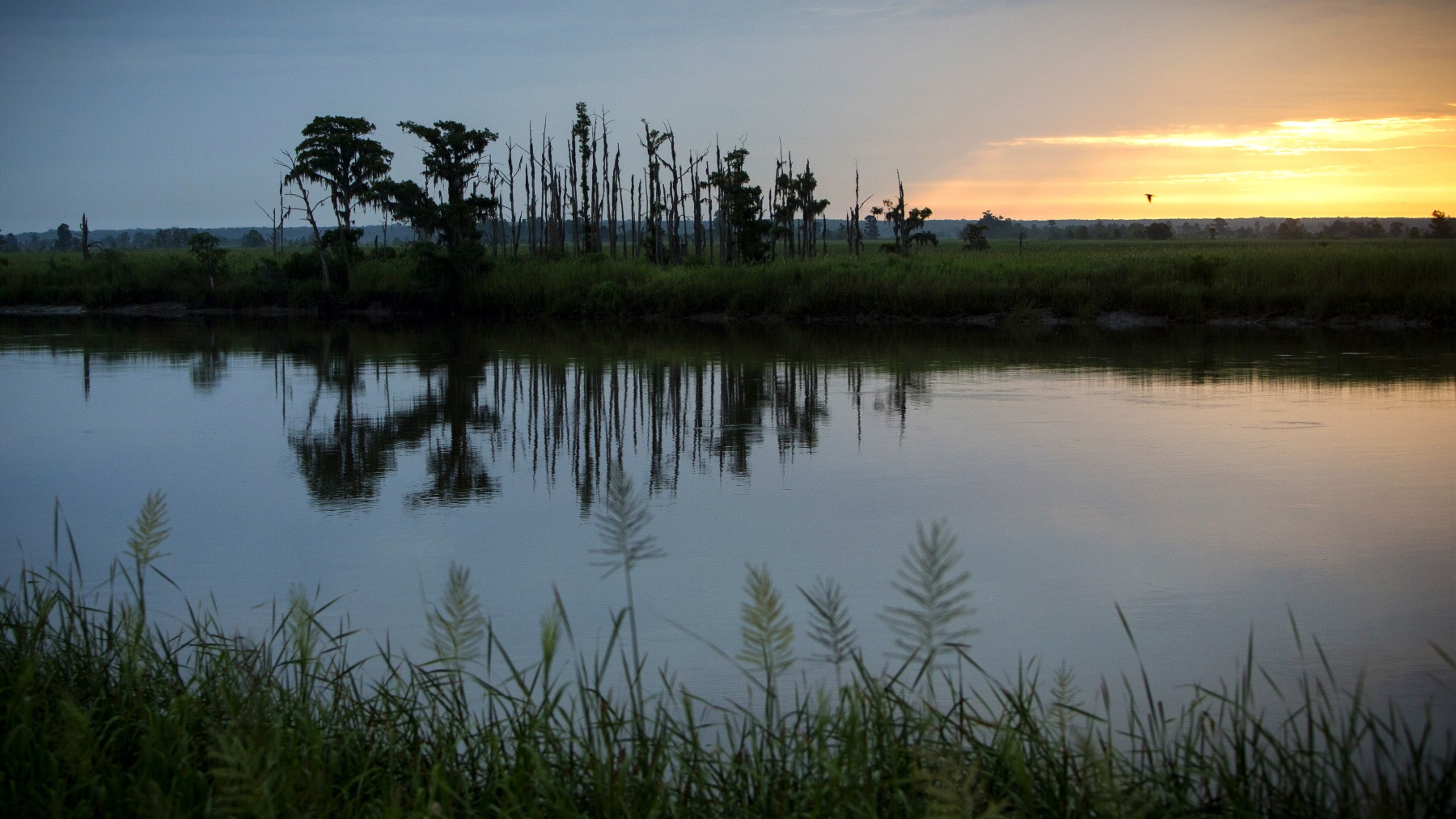Last week, the federal government released the National Climate Assessment, a report mandated by Congress to come out every four years. It breaks down the effects of climate change by region. In this round, it also talks about things that are already happening that affect people’s lives, including in the South.
“We’re seeing rising ocean levels. That is happening now,” said Adam Terando, a research ecologist at the U.S. Geological Survey based in North Carolina, who was the federal coordinating lead author for the Southeast chapter of the report.
“We are seeing warmer nighttime temperatures. That is happening now,” he continued. “We are seeing across many parts of the region heavier rainstorms. We are seeing that now.”
In the future, he says, all of that will continue.
Sea levels, which have gone up by about 9 inches in the past 80 years near Savannah, will continue to rise. Neighborhoods that have begun flooding will flood more frequently. That will have economic effects on coastal residents, visitors and businesses. According to one study, Atlanta could see an influx of people moving from the coasts.
READ MORE: Georgia Coast Faces Sea Level Rise
For decades, the South bucked a global trend of rising average temperatures, but Terando said in the future, depending on the levels of greenhouse gases in the atmosphere, that could change.
Warmer temperatures can be dangerous for health, for worker productivity and for certain crops.
Nighttime temperatures, meanwhile, are going up.
“The warmer nighttime temperatures particularly worry me,” said University of Georgia atmospheric scientist Marshall Shepherd. “When temperatures don’t cool off very much at nighttime, that’s when you start to have the health concerns.”
Wildfires could become more common in the South. Plants and wild animals could lose their habitats. Heavier storms could lead to more flooding in cities, including Atlanta.
Shepherd, who wasn’t involved in the report, said places all over Georgia are at risk from climate change.
“Our state is particularly vulnerable because of the importance of agriculture, the importance of our coastal communities and the fact that we have a major urban population, particularly in Atlanta,” he said, “We’ll have to face not only the urban heat island associated with living in an urban concrete environment but also the specter of warming temperatures.”
Atlanta has made a commitment to reduce the emissions that contribute to climate change, saying it will use only “clean” energy by 2035.








